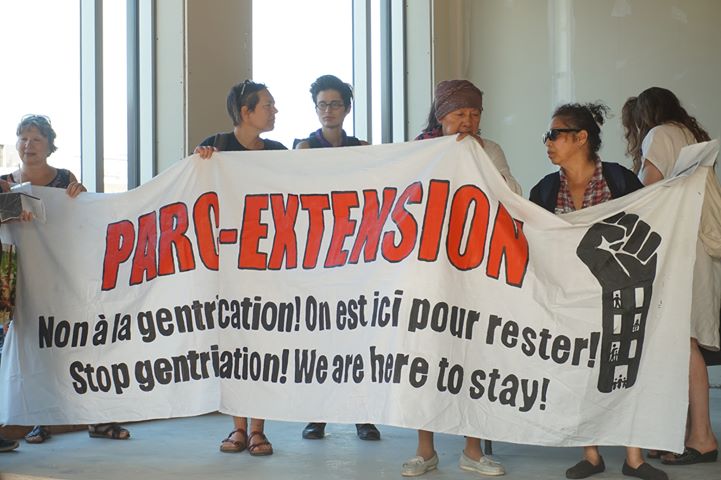Urban universities take up a lot of space, and their presence has a profound impact on local neighborhoods’ economies. When universities such as McGill, Concordia, or the University of Montreal (UdeM) expand their properties or develop new ones, property values in the surrounding area tend to increase and developers pressure landowners to sell their properties. This is one example of gentrification, and it is directly abetted by Universities who fail to take preventative measures.
UdeM recently came under fire for gentrifying the Parc-Extension area with its Montreal Innovation Laboratory project (MIL). While the project’s goal of turning Montreal into a hub for the growing AI industry is entirely legitimate, it has had unintended consequences. Vacancy rates in the ParcEx this year hit an unprecedented low, and some residents of the area have cited the recent UdeM development as the cause for rising rents.
ParcEx is one of the most ethnically-diverse neighbourhoods in all of Canada, and it is also relatively low-income. Working-class families in the neighborhood lack the financial means to retain their properties under the economic pressure created by the development of a UdeM campus in the area. Residents have already been seeing rising rates of evictions. Unless the university takes action now, people remain at risk of losing their homes. UdeM has argued that the project is a ‘lifeline’ for the struggling neighbourhood, and that increasing its attractiveness will improve the quality of life for its residents. However, as evictions have continued and expensive new condos have been established, it has become increasingly evident that the project is inaugurating a dramatic demographic transformation in the community.
Instead of improving the quality of life for the current residents of the area, the project forces them away from Parc-Ex and replaces them with higher-income residents. Individuals who have been forced out face significant obstacles to finding affordable housing again: Montreal is currently experiencing a housing crunch, and housing vacancy rates in Parc-Ex are at an all-time low, leaving evicted residents without many options. The gentrification in Parc-Ex poses an existential threat to a neighbourhood in Montreal. McGill students should be particularly concerned about this issue because they also contribute to gentrification.
While students are a vital economic asset to the city of Montreal, entire districts of the city have turned into de facto residence areas for students. Students have different needs than full-time residents that are satisfied by different enterprises, and they do not use government services that regular residents pay for with tax dollars. Neighborhoods like the Plateau, Saint-Henri, and the Gay Village have become increasingly expensive to live in, as “studentification” has grown. This is cutting some Montreal residents off from potentially affordable housing, creating “student ghettos” that are not well integrated into local communities, and ultimately diminishes the quality of life for non-student residents.
MIL might not even be the most economically viable project for the UdeM according to an article by UdeM Professor Emeritus Jean-Claude Marsan, in à babord! This fact notwithstanding, it would not be difficult for UdeM to curb gentrification resulting from its project anyway. Research has shown that universities can harness their economic power to foster inclusive growth in local communities. The University of Toronto has launched an “Anchor Strategy” for its campus in Scarborough, which, like Parc-Ex, is one of Canada’s most multicultural areas. The strategy is geared to bring more diverse and local enterprises onto its campuses and to increase employment opportunities for nearby residents. Similarly, Drexel University in Philadelphia demonstrated that its Hire Local campaign led to decreased turnover rates among staff.
University administrations have the most control over gentrification, but this does not exonerate students of responsibility. McGill students are a key factor in the issue and are therefore morally responsible for safeguarding the area’s unique atmosphere and accessibility. By spreading awareness on social media platforms, protesting with the residents of Parc-Ex, and petitioning the local government and university administrations, students can take action. University of Montreal’s failure to employ a strategy like UofT’s or Drexel’s is reprehensible, and we must hold McGill to a higher standard.









eloquent
This “hire local” program at Drexel is a drop in the bucket, that area has a tremendously deep dark history between UPenn, the Science Center and Drexel itself.